What is a Bitcoin Node?
Last updated
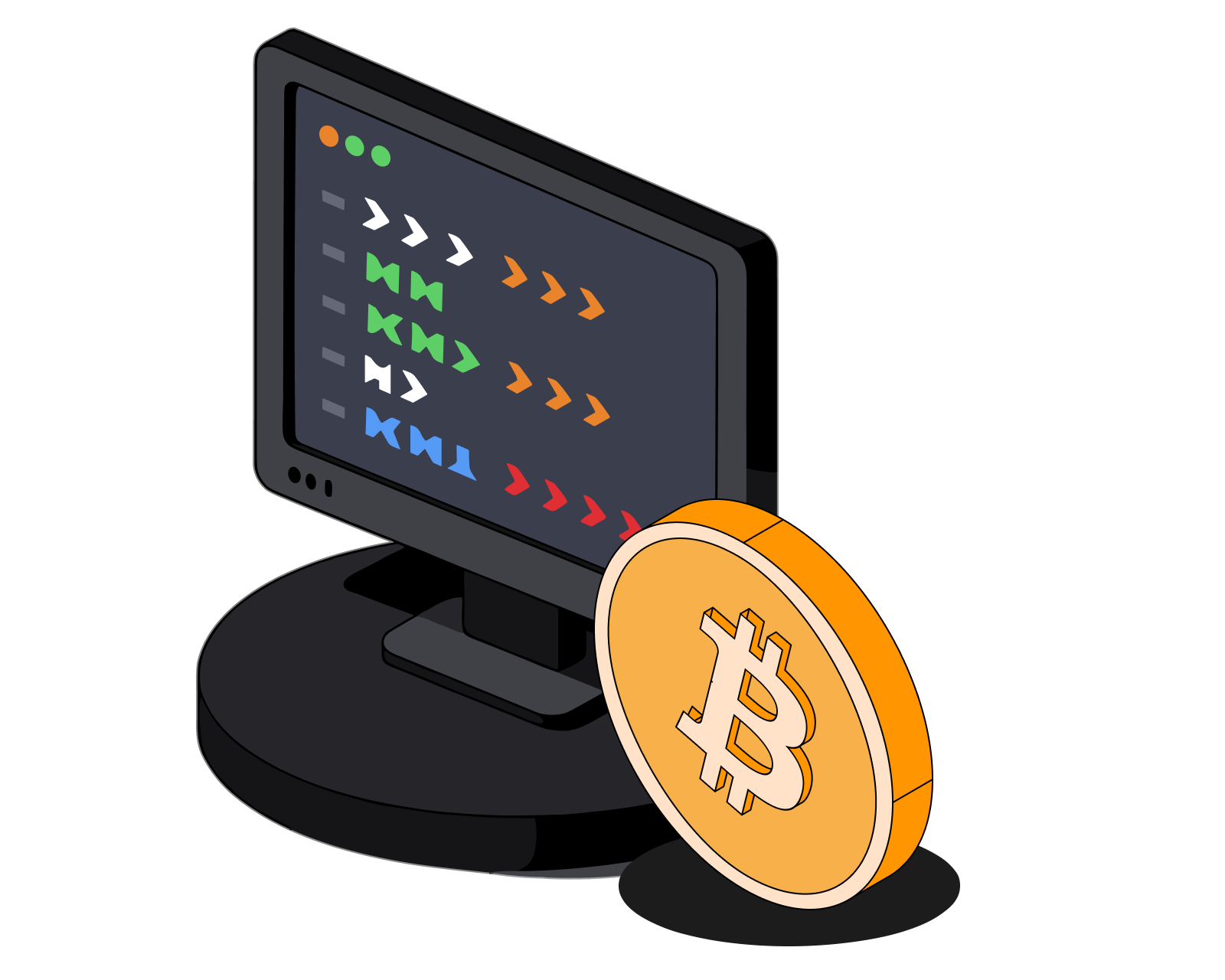
Table of Contents
- Bitcoin Nodes: The Foundation of the Network
- Why Are Bitcoin Nodes Important?
- Types of Bitcoin Nodes
- How Bitcoin Nodes Work Together & How to Run One
- Benefits and Challenges of Running Your Own Node
- Choosing the Right Node Type and The Importance of Node Diversity
- Bitcoin Nodes and the Future of Bitcoin
- Conclusion
Bitcoin Nodes: The Foundation of the Network
A Bitcoin node is a computer running the Bitcoin software and participating in the Bitcoin network. These nodes are crucial for Bitcoin's operation, acting as its backbone. They validate transactions, maintain the blockchain, and ensure the network's integrity. This distributed network of nodes ensures that no single entity controls Bitcoin, making it resistant to censorship and single points of failure.
Get started with a quick introduction to Bitcoin. Dive deeper into what Bitcoin is and explore its origin story - from an idea to a global financial revolution.
Why Are Bitcoin Nodes Important?
Bitcoin nodes are essential for several reasons:
-
Decentralization: Nodes distribute control, preventing any single entity from controlling the network. This aligns with Bitcoin's core philosophy of decentralization, empowering individuals and reducing reliance on intermediaries. Learn more about decentralization and its importance.
-
Security: Nodes validate transactions, ensuring they adhere to the Bitcoin protocol and preventing double-spending and fraud. This validation process is crucial for maintaining the integrity of the blockchain and protecting users' funds. Understand how Bitcoin transactions work, and learn more about Bitcoin security.
-
Maintaining the Blockchain: Nodes store and update the blockchain, the record of all Bitcoin transactions. Learn more about blockchain technology.
-
Reliability: The distributed network of nodes ensures that Bitcoin remains operational even if some nodes go offline. This redundancy makes Bitcoin a robust and reliable system.
-
Consensus: Nodes work together to agree on the state of the blockchain, ensuring everyone has the same information. This consensus mechanism is essential for the proper functioning of Bitcoin. Learn about Bitcoin governance.
Types of Bitcoin Nodes
There are different types of Bitcoin nodes, each with varying functions and resource requirements:
-
Full Nodes: Store the entire blockchain and independently validate all transactions. They are crucial for network security and decentralization. Running a full node requires significant storage space and bandwidth. Learn more about Bitcoin mining and how full nodes interact with blockchain miners.
-
Lightweight Nodes (SPV Clients): Store only a portion of the blockchain (block headers) and rely on full nodes for transaction validation. They are more resource-efficient but less secure. These nodes download only the block headers, which contain summarized information about each block, and rely on full nodes for transaction details. They are less resource-intensive but offer less security and privacy.
-
Pruned Full Nodes: Store the entire blockchain but discard older blocks to save disk space. They offer a balance between security and resource efficiency. Similar to full nodes, pruned nodes validate transactions and enforce rules, but they store only a portion of the blockchain, reducing storage requirements.
-
Mining Nodes: Full nodes that also participate in mining, creating new blocks and earning Bitcoin rewards. In addition to validating transactions, mining nodes participate in the process of adding new blocks to the blockchain.
-
Lightning Network Nodes: Nodes that participate in the Lightning Network, enabling faster and cheaper off-chain transactions. These nodes participate in the Lightning Network, a layer-2 scaling solution built on top of Bitcoin. Learn about the Lightning Network and how it works.
How Bitcoin Nodes Work Together & How to Run One
Bitcoin nodes communicate with each other, sharing transaction and block information to maintain a consistent view of the blockchain. This peer-to-peer network ensures that all nodes have the same information and agree on the state of the ledger. Learn more about Bitcoin's peer-to-peer nature.
Running a Bitcoin node contributes to the network's decentralization and enhances your own transaction verification capabilities. Here's a simplified overview:
-
Download Bitcoin Core: Download the Bitcoin Core software, the official Bitcoin client, from bitcoincore.org.
-
Install and Sync: Install the software and allow it to synchronize with the Bitcoin blockchain. This process can take several days, depending on your internet connection and hardware.
-
Configuration: Configure your node based on your needs and resources, such as setting up port forwarding for remote access. Detailed instructions can be found on the Bitcoin Core website.
Benefits and Challenges of Running Your Own Node
Running a Bitcoin node offers several advantages:
-
Increased Security and Privacy: Verify transactions independently, reducing reliance on third parties. Learn more about Bitcoin security and privacy.
-
Support for the Network: Contribute to Bitcoin's decentralization and resilience. Understand Bitcoin governance.
-
Faster Transaction Verification: Verify transactions locally without relying on external services. Potentially faster transaction confirmations by broadcasting directly to the network.
-
Lower Fees: Potentially lower fees by setting custom fees. Learn more about Bitcoin fees.
However, running a full node requires resources:
- Disk Space: Storing the entire blockchain requires significant disk space (hundreds of gigabytes).
- Bandwidth: Downloading and sharing blockchain data consumes bandwidth.
- Processing Power: Validating transactions requires some processing power. Some technical knowledge is needed for setup and maintenance. Initial synchronization with the blockchain can take time.
Lightweight nodes (SPV clients) require fewer resources but offer less security.
Choosing the Right Node Type and The Importance of Node Diversity
The best node type depends on your needs and resources.
- Full Node: For maximum security and supporting the network.
- Lightweight Node: For limited resources and basic functionality.
- Pruned Full Node: A balance between security and resource efficiency.
A diverse distribution of nodes geographically and across different network types is crucial for Bitcoin's decentralization and resilience. This prevents any single entity or group from controlling the network.
Bitcoin Nodes and the Future of Bitcoin
As Bitcoin evolves, nodes will continue to play a vital role in maintaining its security, decentralization, and functionality. Ongoing developments, such as the implementation of Schnorr signatures and Taproot, are already improving efficiency and privacy. Future upgrades and innovations will continue to shape the landscape of Bitcoin nodes, ensuring the network's long-term scalability, security, and decentralization. Bitcoin nodes are essential for validating and storing Bitcoin Ordinals inscriptions, contributing to the security and permanence of these unique digital assets. Sidechains, independent blockchains pegged to Bitcoin, often use a federation of nodes to manage the two-way peg.
Learn more about Bitcoin's layer-2 solutions.
Conclusion
Bitcoin nodes are the backbone of the Bitcoin network, ensuring its decentralization, security, and integrity. By understanding the different types of nodes and their functions, you can appreciate their crucial role in the Bitcoin ecosystem.
Explore the world of cryptocurrencies. Learn how to buy and sell Bitcoin, and create a Bitcoin wallet. Understand Bitcoin Cash and explore blockchain technology.
Related guides
Start from here →
What is Bitcoin?
Get a straightforward introduction to Bitcoin and why it matters.

What is Bitcoin?
Get a straightforward introduction to Bitcoin and why it matters.

How do bitcoin transactions work?
Understand how the Bitcoin public blockchain tracks ownership over time. Get clarity on key terms like public & private keys, transaction inputs & outputs, confirmation times, and more.

How do bitcoin transactions work?
Understand how the Bitcoin public blockchain tracks ownership over time. Get clarity on key terms like public & private keys, transaction inputs & outputs, confirmation times, and more.

What is Bitcoin governance?
How does the network operate and decide on critical issues?

What is Bitcoin governance?
How does the network operate and decide on critical issues?
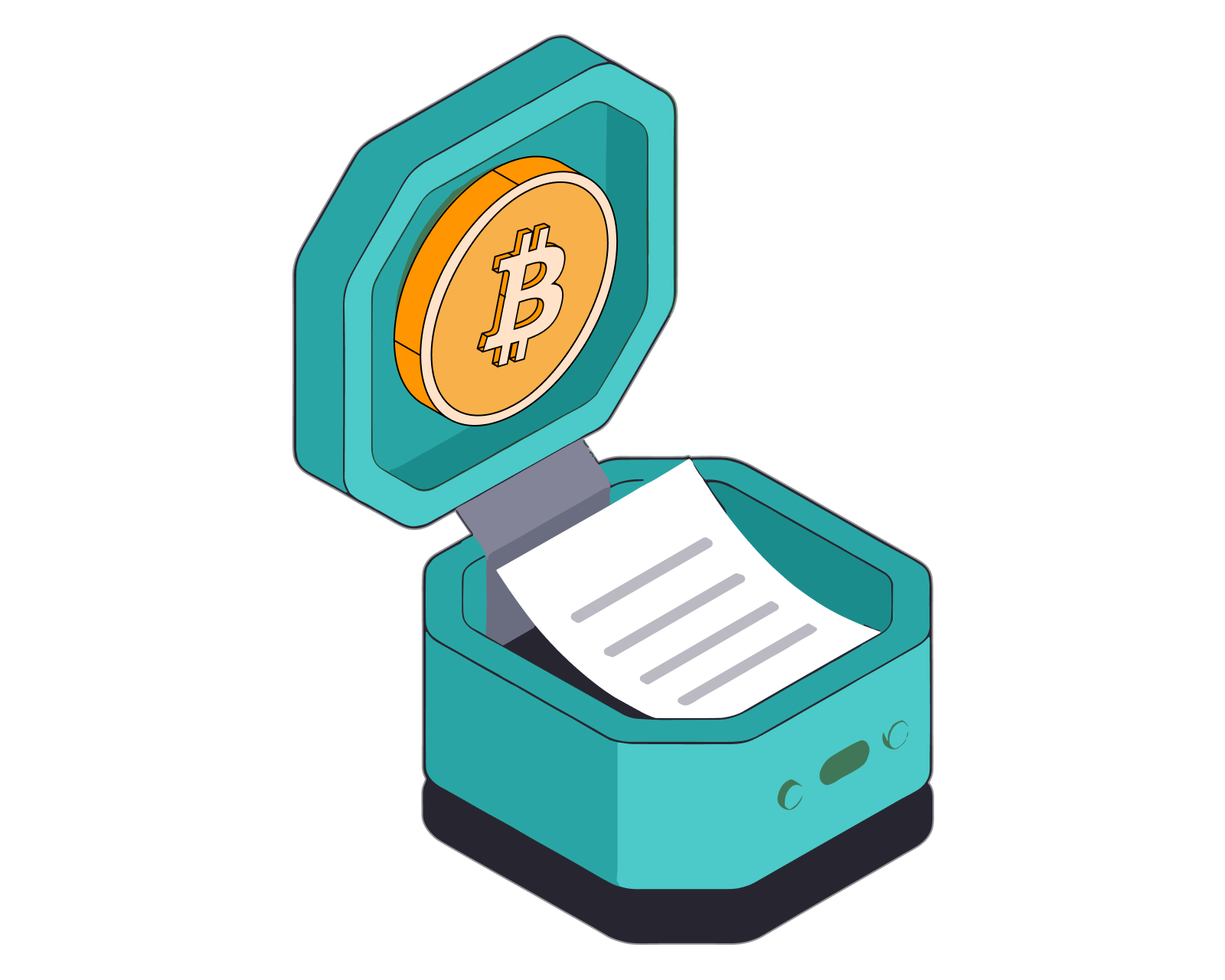
What is Bitcoin mining?
Learn why the process of minting new bitcoins, known as 'Bitcoin mining,' is in some ways similar to the process of extracting precious metals from the earth.

What is Bitcoin mining?
Learn why the process of minting new bitcoins, known as 'Bitcoin mining,' is in some ways similar to the process of extracting precious metals from the earth.
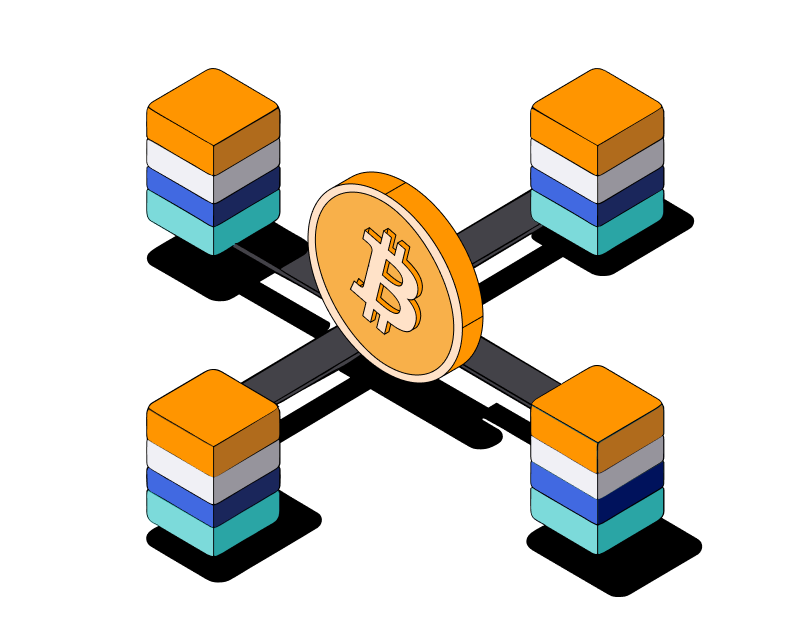
What is a Blockchain?
This beginner's guide explains blockchain, its importance in cryptocurrencies, and how it works. Explore its uses, advantages, and future potential.

What is a Blockchain?
This beginner's guide explains blockchain, its importance in cryptocurrencies, and how it works. Explore its uses, advantages, and future potential.
STAY AHEAD IN CRYPTO
Stay ahead in crypto with our weekly newsletter delivering the insights that matter most
Weekly crypto news, curated for you
Actionable insights and educational tips
Updates on products fueling economic freedom
No spam. Unsubscribe anytime.
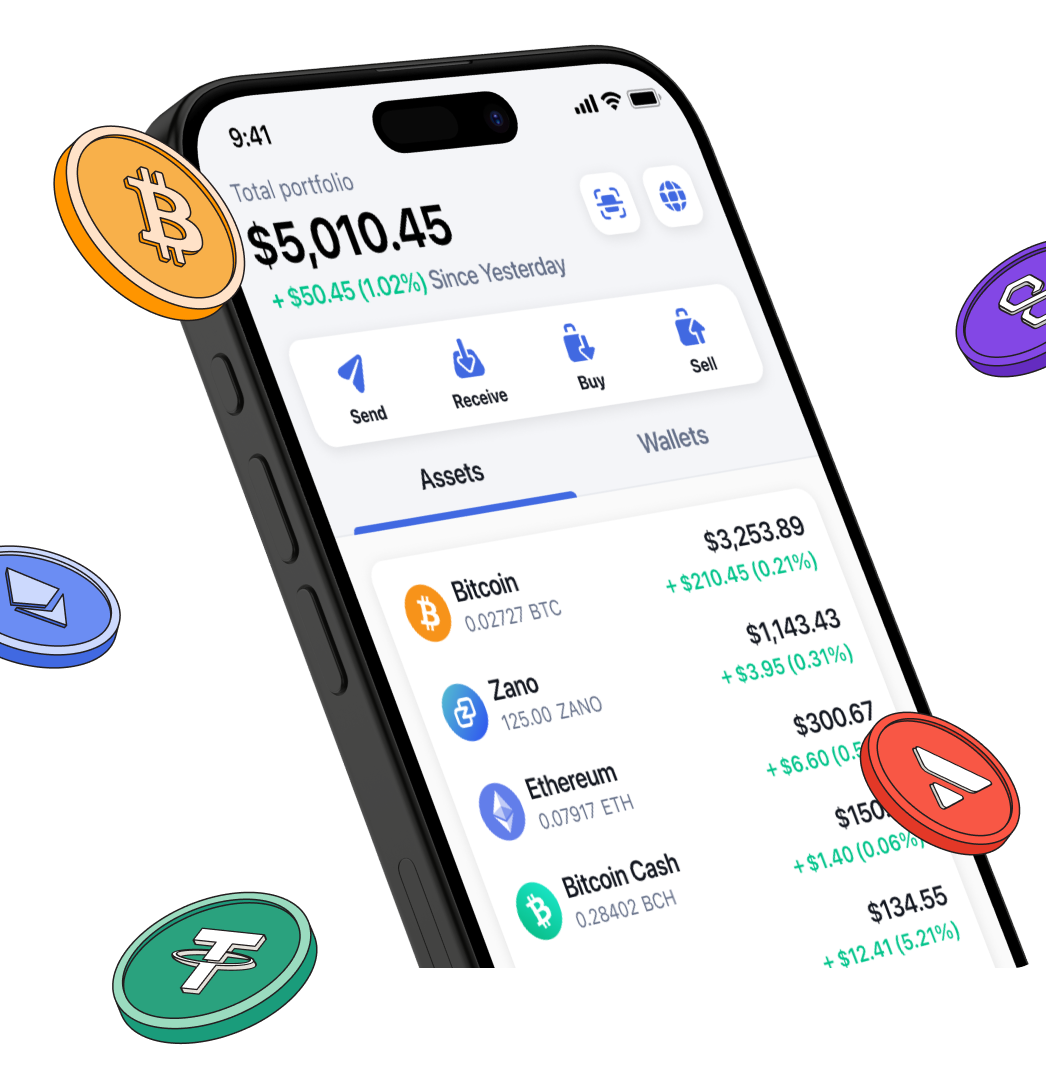
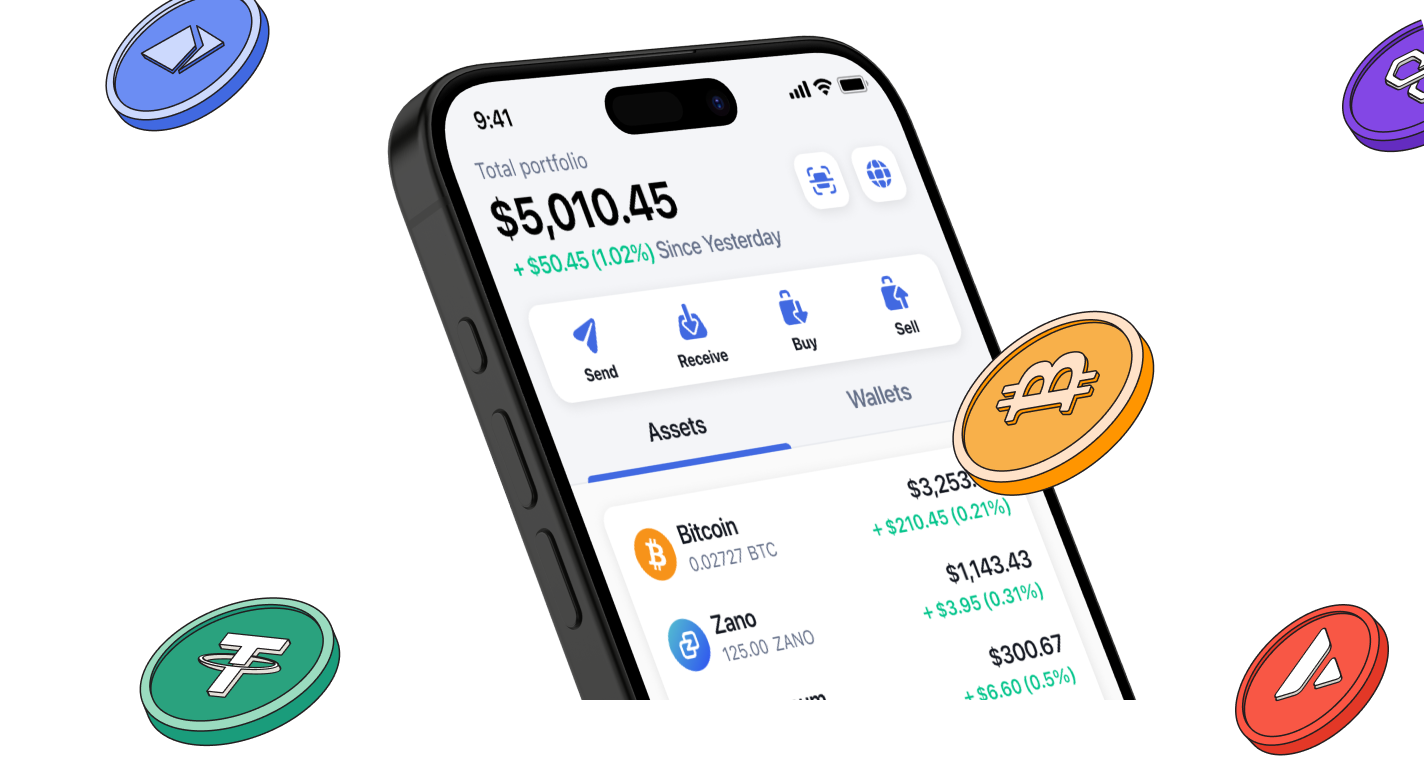
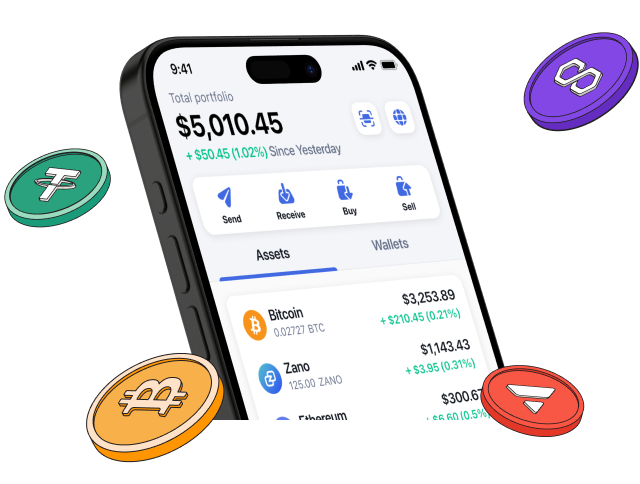
Start investing safely with the Bitcoin.com Wallet
Over wallets created so far
Everything you need to buy, sell, trade, and invest your Bitcoin and cryptocurrency securely

© 2026 Saint Bitts LLC Bitcoin.com. All rights reserved



